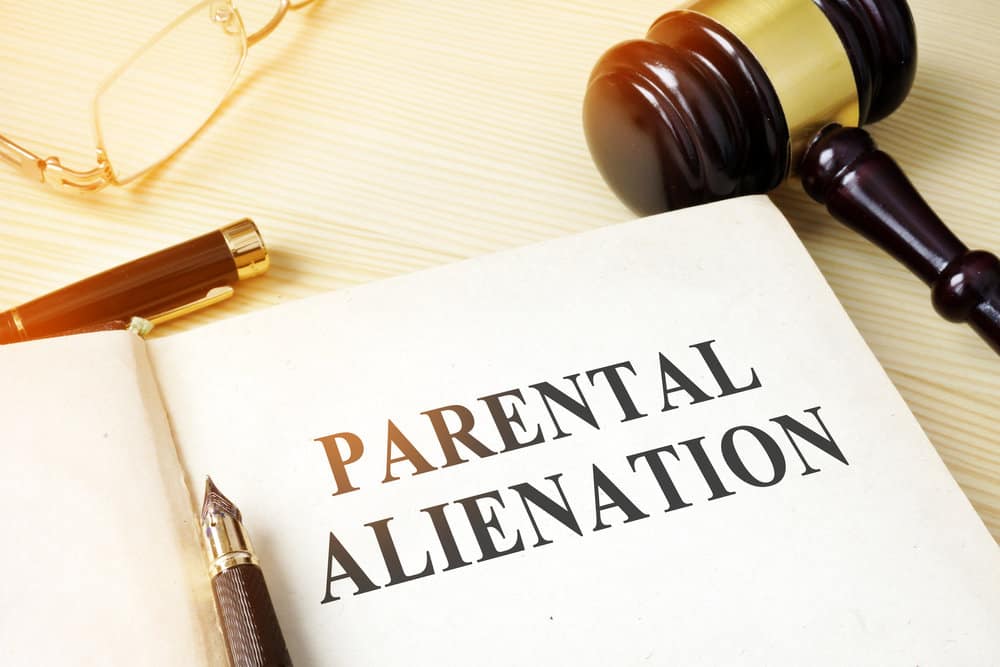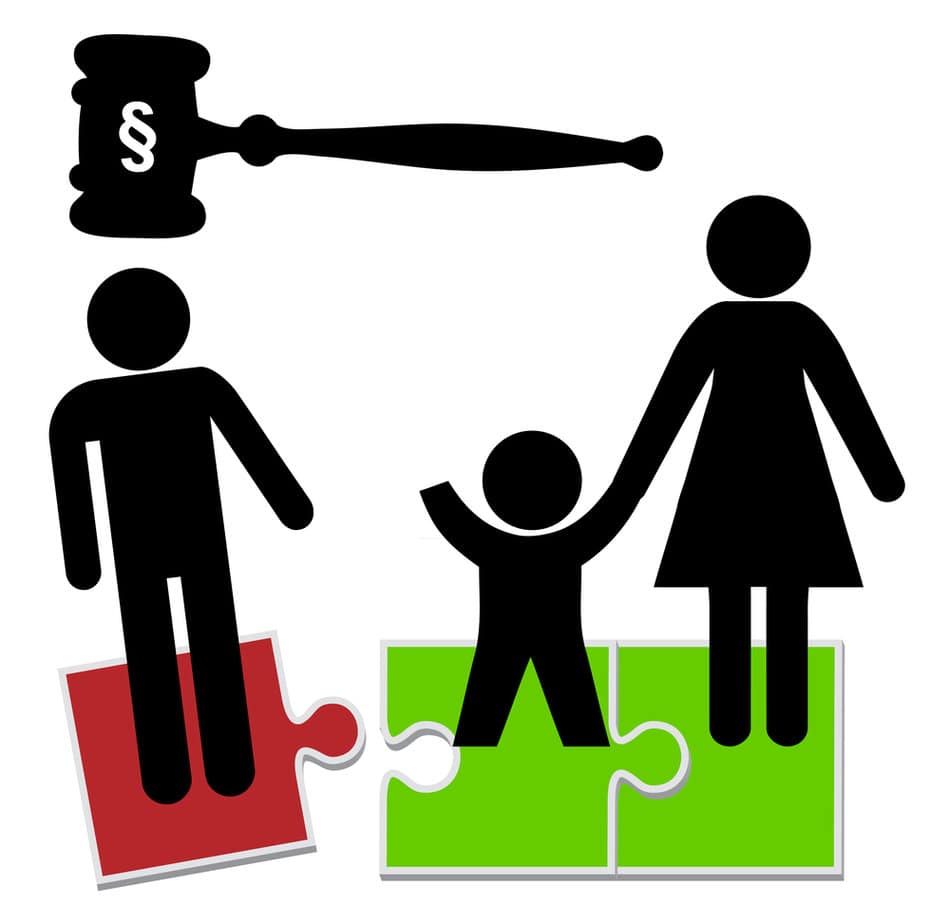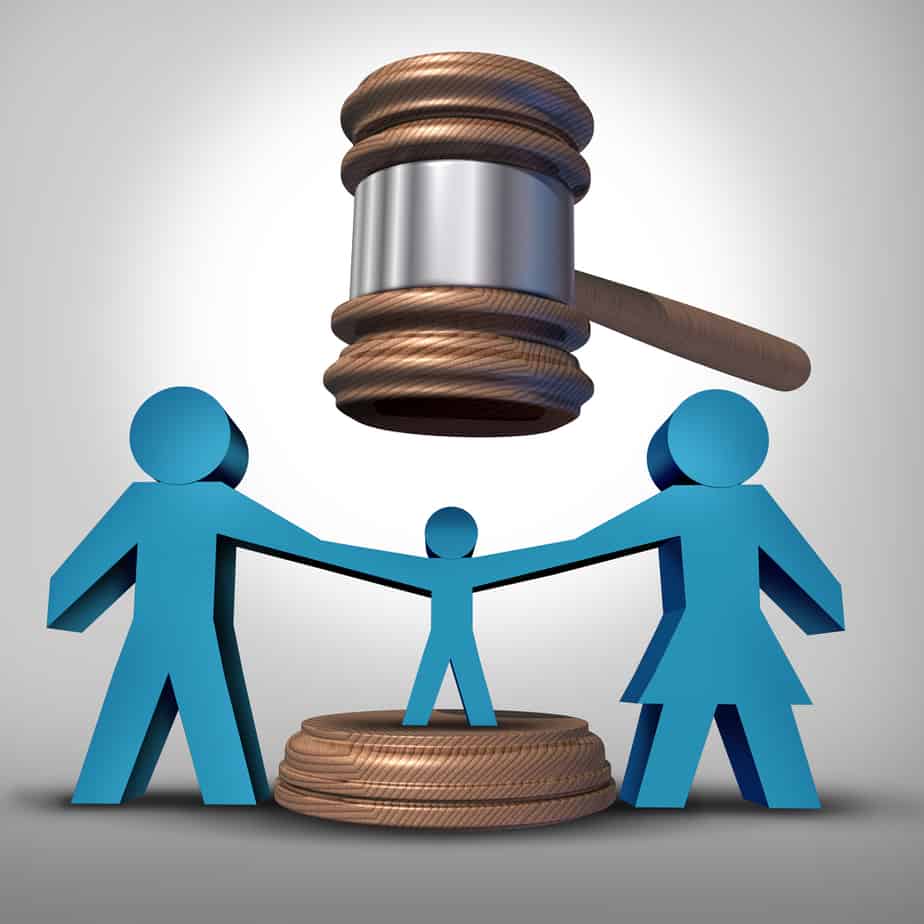Parental alienation is a concerning issue that affects numerous families, straining relationships and causing emotional distress to children and parents alike. It occurs when one parent intentionally undermines the child’s relationship with the other parent through manipulation, exaggeration, or false accusations. This phenomenon is often seen as a form of child abuse, given its long-lasting effects on the child and the targeted parent.
Understanding the concept of parental alienation is important, as it often occurs in the context of high-conflict divorce or separation. In many cases, the alienating parent intends to harm the relationship between the child and the other parent, further complicating the family’s situation.
Key Takeaways
- Parental alienation is a form of child abuse that damages the relationship between a child and a parent through manipulation and falsehoods.
- This issue often arises during high-conflict divorces or separations, with one parent trying to undermine the child’s relationship with the other parent.
- Proper understanding and intervention of parental alienation are essential in safeguarding the emotional well-being of the children and targeted parents involved.

Understanding Parental Alienation
Parental alienation is a complex and distressing issue that impacts families undergoing separation or divorce. In essence, it occurs when one parent manipulates or lies to their child about the other parent, resulting in the child becoming hostile, rejecting, and emotionally detached from that parent. Often referred to as emotional child abuse, parental alienation can have long-lasting and significant effects on the child’s well-being and relationship with both parents.
The process of parental alienation is not a random act. Instead, it is a deliberate attempt by one parent to turn the child against the other through constant negative statements, the spread of false accusations, and even the creation of a stressful atmosphere during visitations. In extreme cases, the alienating parent may withhold access to the child altogether, essentially erasing the targeted parent from their lives.
Recognizing the signs of parental alienation is essential for understanding the gravity of this issue. Some key indicators include the child expressing unjustified hatred or disdain for the targeted parent, refusing to spend time with them, and parroting the alienating parent’s negative statements. Furthermore, the affected child may exhibit emotional distress, low self-esteem, and noticeable changes in behavior due to this destructive influence.
Sadly, the consequences of parental alienation are not just limited to the targeted parent and the child. It can also severely impact the child’s support network, including grandparents, relatives, and friends. In many instances, the child may become isolated from these loved ones, losing valuable emotional support during this tumultuous time.
Despite the severe emotional harm inflicted on the child and the targeted parent, parental alienation is not considered an arrestable crime in most jurisdictions. Nevertheless, affected families must seek professional help and legal guidance to navigate this trying period. By addressing the issue head-on, it may be possible to mitigate the damage and begin healing and restoring relationships.

Legal Perspective
From a legal standpoint, parental alienation can be a complex and contentious issue that often comes to the forefront in family courts, especially during high-conflict divorces and custody battles. In these cases, judges must carefully review and consider various factors, including evidence of alienating tactics, potential estrangement, and any underlying family violence.
When looking at cases involving parental alienation, courts typically focus on the child’s best interests. This means examining the extent to which one parent may have deliberately manipulated the child’s thoughts and feelings to undermine the relationship with the other parent. It’s essential that judges thoroughly assess the evidence presented to determine if genuine alienation has occurred or if there are legitimate concerns about visitation rights and the child’s safety.
While parental alienation may not be explicitly classified as a crime in some jurisdictions, its effects can be just as devastating. Acts of alienation might include disparaging remarks about the other parent, interfering with communication or visitation, or even coaching the child to make false claims of abuse. These tactics can result in emotional harm not only for the targeted parent but also for the child.
Despite its significant impact on families, parental alienation is sometimes dismissed or overlooked due to misconceptions about its legitimacy and the lack of a universally accepted definition. Thankfully, growing awareness in the legal community has led to more courts taking this issue seriously, recognizing that parental alienation can have long-lasting and harmful consequences on everyone involved.
In conclusion, although parental alienation may not be classified as a crime in a traditional sense, it is an issue that demands attention and careful examination by family courts. By acknowledging the existence and severity of parental alienation, judges can help ensure that custody and visitation decisions truly serve the child’s best interests, reinforcing the importance of nurturing and maintaining healthy relationships between parents and their children.
Effects on Involved Parties
Parental alienation, a form of psychological manipulation, can have profound effects on everyone involved, impacting both the alienated and alienating parents and the child at the center of the situation. This damaging practice can create lasting trauma, as one parent often bad-mouths the other to gain the child’s favor and affection.
Seeing their once cherished connection dissolve, the alienated or targeted parent undergoes significant emotional distress. The loss of contact with their child, which may also extend to other family members and friends, can lead to feelings of hopelessness, depression, and anxiety. These parents may struggle to understand why their child has rejected them as they grapple with the mounting animosity.
On the other side of the coin, the alienating parent, often driven by a deep-seated grudge, may fail to recognize the severe consequences of their actions. As they sow discord and encourage rejection, these individuals may believe they protect the child. Unfortunately, the emotional and psychological harm they cause affects everyone in the long run.
The child, caught in the middle of this precarious situation, suffers the most. Exposed to an environment of animosity and manipulation, they may begin to harbor resentment against the targeted parent. This sustained hostility can stifle their emotional development, leading to many issues, from difficulty forming relationships to chronic mental health problems. The traumatic experience of parental alienation is far-reaching and not easily overcome.
In essence, the effects of parental alienation ripple through the lives of all parties involved. The targeted parent’s bewildering heartache, the alienating parent’s misguided actions, and the child’s emotional turmoil culminate in a sorry state of affairs that leaves lasting scars on all.

How to Identify Parental Alienation
Parental alienation is a regrettable outcome of some divorces and custody disputes. It arises when one parent manipulates the child into rejecting the other parent, often through a series of negative comments, false accusations, and even brainwashing. This section identifies parental alienation and its impact on the child.
The first sign of parental alienation typically involves changing the child’s behavior. They may suddenly become hostile or distant towards the targeted parent, even when there aren’t any obvious reasons to justify such feelings. Children experiencing parental alienation may also grieve the absence of the targeted parent, despite them being available and willing to maintain a relationship.
Another indication of parental alienation is the presence of consistent negative comments about the targeted parent. The alienating parent might present the targeted parent in a bad light, sowing seeds of distrust and animosity in the child’s mind. This could range from subtle insinuations to outright false accusations.
Hostility is another telling sign of parental alienation. The child might display aggressive behavior or a heightened animosity towards the targeted parent, usually mirroring the alienating parent’s attitude. This hostility might also translate into animosity towards the targeted parent’s extended family and friends.
In many cases, the alienating parent engages in what can only be described as brainwashing. This process involves systematically feeding the child distorted or false information about the targeted parent, creating fear and avoidance in their relationship. The child might even be led to believe that the targeted parent is dangerous or abusive, further driving a wedge in their bond.
Identifying and addressing parental alienation is crucial to ensure the child’s emotional well-being. Being alert to changes in behavior, expressions of hostility, and an onslaught of negative comments or false accusations can help identify this harmful manipulation. Moreover, fostering open, honest communication and seeking professional assistance can be instrumental in combatting this destructive dynamic.
Parental Alienation Checklist
Here’s a checklist that can help identify potential signs of PAS. Remember that exhibiting one or more symptoms doesn’t automatically signify PAS. Consultation with a professional is advised if you suspect parental alienation.
1. Unfounded Abuse Accusations: The child makes accusations against the targeted parent of abuse or neglect that are not substantiated or are inconsistent with the parent’s character.
2. Unwarranted Animosity: The child displays sudden or intense hostility towards the targeted parent without a valid reason.
3. Idealization of Alienating Parent: The child excessively idealizes the alienating parent and rejects any criticism against them.
4. Lack of Guilt: The child shows no guilt or remorse for their poor behavior or treatment towards the targeted parent.
5. Parroting Language: The child uses adult language or phrases that seem borrowed from the alienating parent. This might include blaming the targeted parent for the breakup or criticizing their character.
6. No Ambivalence: The child sees one parent as completely perfect and the other as flawed, with no in-between or acknowledging that everyone makes mistakes.
7. Unsubstantiated Claims: The child makes false or exaggerated claims about the targeted parent’s behavior, with little to no evidence.
8. Alienation Extends to Family: The child’s animosity extends beyond the targeted parent to their extended family, including grandparents, aunts, uncles, and cousins.
9. Cruelty or Disrespect: The child shows overt signs of disrespect, ridicule, or even cruelty towards the targeted parent, often without reason.
10. Alienating Parent Support: The child believes the alienating parent completely supports their rejection of the targeted parent.
If these signs seem familiar, it’s crucial to seek professional help. A mental health professional or family therapist familiar with parental alienation can help navigate these complex issues and work toward the best outcome for the child.
The Role of Professionals
When dealing with parental alienation, the involvement of professionals such as lawyers, therapists, and psychologists plays a crucial role in navigating the complex situations that often arise. These individuals support and guide the affected parties, typically mothers, fathers, and children caught in the crossfire.
A competent lawyer can help protect and uphold the rights of the mother and father involved in the dispute, addressing legal issues and advocating for their client. Parents need to have knowledgeable legal representation on their side to ensure that their interests are safeguarded throughout the process.
On the other hand, therapists offer emotional support and counseling to the family members grappling with the alienation phenomena. They encourage healing and reconciliation by providing a safe space for open and honest communication. Additionally, therapists can assess the child’s emotional state and detect any underlying issues contributing to parental alienation.
Psychologists possess the unique ability to deliver evidence-based interventions and professional evaluations that might be required in cases of parental alienation. Through their expertise, they can determine the extent of the emotional damage. Furthermore, they can offer insights into the authenticity of alienation claims, considering the possibility of false accusations that may arise.
Authors and commentators also contribute significantly to the discussion of parental alienation. Their writings can serve as resources for parents, professionals, and even the general public, helping us understand the complex dynamics of these unfortunate situations. By sharing their knowledge and research, authors may shed light on prevention strategies or ways to manage the detrimental effects of alienation.
In conclusion, the collaboration of multidisciplinary professionals is vital for addressing parental alienation. Lawyers, therapists, psychologists, and authors bring unique perspectives and expertise, assisting families through these difficult times. With their combined efforts, they work towards mitigating the negative consequences for all parties involved.

Navigating Family Assessments and Evaluations
When facing the complexities of family assessments and custody evaluations, it’s essential to understand these processes’ role in parental alienation cases. Parental alienation is a distressing family dynamic that often emerges during divorce, and it can deeply impact the well-being of children caught in the crossfire.
Family assessments are designed to clearly understand the family’s dynamics, relationships, and overall functioning. These assessments can reveal vital information about each family member’s psychological and emotional well-being. These evaluations typically involve interviews, psychoeducational testing, and observation of parent-child interactions.
Custody evaluations, on the other hand, are primarily focused on determining the child’s best interest regarding parental arrangements. Forensic psychologists like Erik Dranoff play a vital role in these evaluations. They provide the court with an unbiased perspective on the child’s needs, the parent’s abilities, and the family’s overall situation.
Remembering parental alienation is not a formal diagnosis or criminal offense is important. However, it is a serious issue that evaluators and family court judges must be aware of when making custody decisions. The goal is to ensure the child’s well-being and mitigate the negative effects of parental alienation.
Navigating these assessments and evaluations can be challenging. Still, with the help of skilled professionals and a clear understanding of the process, families can work towards achieving the best possible outcomes for everyone involved. Emotions can run high in these situations, so staying calm, collected, and focused on the child’s needs is crucial.
In conclusion, family assessments and custody evaluations are crucial in addressing parental alienation and protecting the child’s best interests. A collaborative and open approach among all parties involved can create a positive environment for the child and set them up for a more secure and loving future.
Interventions and Solutions
When faced with the challenging issue of parental alienation, exploring various interventions and solutions to mend the damaged relationship between the child and the targeted parent is crucial. To achieve this, several approaches can be utilized, catering to the unique needs of the affected family members.
One such intervention is reunification therapy. This therapeutic process encourages open communication between the child and the alienated parent, aiming to rebuild their bond. Through guidance from a qualified mental health professional, the child learns to understand the negative impact of the alienation and begins to view the targeted parent in a more positive light.
Another promising solution is a reunification program. These programs are designed to address the complex issues surrounding parental alienation, offering individual and group sessions for affected children, targeted parents, and even the alienating parent. By providing a comprehensive support system, reunification programs can reestablish trust and encourage healthy relationships within the family.
Shared parenting is also an effective approach, emphasizing the importance of parents taking an active role in the child’s life. It’s vital to collaborate on decisions regarding education, healthcare, and other aspects of the child’s well-being when possible. Shared parenting ensures the child has a stable, balanced environment where both parents are equally respected, and their rights are protected.
Last but not least, a fair parenting schedule can greatly mitigate the effects of parental alienation. By providing the child with consistent, quality time with both parents, the child develops deep relationships with each one, reducing the likelihood of influence by the alienating parent.
In conclusion, tackling parental alienation is no easy feat. Still, with the right interventions and solutions, families can overcome this unfortunate situation and regain the loving, supportive relationships they once had.
Challenges in Addressing Parental Alienation
Parental alienation can be a heartbreaking challenge for families. For those unfamiliar with the term, this phenomenon occurs when one parent influences their child to reject the other parent unjustly. The impact can be devastating, affecting not just the relationship between the alienated parent and child but also the emotional well-being of everyone involved.
In intact families, parental alienation might be less pronounced, but it remains a sad reality that can tear relationships apart. One of the biggest hurdles in addressing this issue is proving parental alienation. Unlike physical abuse, the scars left behind by this emotional manipulation are often invisible, making it challenging for family courts to identify and act upon.
Since parental alienation doesn’t have a specific set of laws, the task of proving it falls upon the shoulders of family lawyers. This task becomes even more daunting when false information and allegations come into play. Malicious parents sometimes fabricate stories to discredit the other, further complicating matters.
Moreover, the concept of parental alienation syndrome adds another layer of complexity. Although not universally recognized by medical professionals, this syndrome describes the severe emotional distress and behavioral changes exhibited by a child experiencing parental alienation. While this syndrome remains debated, its symptoms in children are undeniably hard to ignore.
Family courts are often faced with the difficult task of untangling the web of allegations, false information, and emotional turmoil that parental alienation presents. Judges and lawyers must tread carefully, ensuring that the child’s best interests remain paramount.
In conclusion, addressing parental alienation is a multifaceted challenge. It requires establishing laws that recognize and address the issue and equipping family courts and lawyers with the necessary tools and training to identify and deal with such cases. Ultimately, society must acknowledge the existence and damage of parental alienation to effectively combat it and preserve the emotional well-being of affected children and families.
Co-Parenting and Preventing Parental Alienation
Co-parenting, when done successfully, can be the key to preventing the painful concept of parental alienation. This occurs when one parent manipulates a child into rejecting or distancing themselves from their other parent, and experts see it as child abuse.
To maintain a healthy co-parenting relationship, it’s crucial not to criticize your ex-partner in front of your child constantly. Encouraging open and honest communication between all parties, setting boundaries, and sharing access to the child fairly can help reduce the likelihood of this damaging situation.
One measure that can be taken to prevent parental alienation is to seek advice from professionals. Signing up for a newsletter written by a family law attorney or a founder of a co-parenting platform can provide valuable insights and tips. Such resources can keep you informed, support effective co-parenting practices, and safeguard your child’s well-being.
It’s essential for parents experiencing difficulties with their ex-partner to seek legal assistance from a family law attorney, especially when it comes to child custody matters. By understanding your rights and the legal options available, you can navigate the delicate landscape of co-parenting and ensure a stable, secure environment for your child.
In conclusion, co-parenting can be a challenging but rewarding endeavor. By remaining vigilant, seeking advice, and working with your ex-partner, you can prevent parental alienation and nurture a loving, supportive relationship with your child.
Conclusion
In family law, parental alienation has become a central issue. As we’ve explored in this article, the concept is recognized by many family court judges and mental health professionals as a real phenomenon with significant consequences for the involved children. However, it is important to approach this topic with a confident, knowledgeable, and neutral tone to provide clear and useful information without exaggeration or false claims.
Despite the damage that parental alienation can cause, it is not considered an arrestable crime. Many believe it should be treated as child abuse, given the profound negative impact it can have on children and parents. Family court judges and legal professionals often work to address instances of parental alienation in custody cases, considering the best interests of the child.
There remains an ongoing debate surrounding parental alienation, as some critics argue that the concept is used to manipulate or control custody disputes. Keeping an open mind and basing discussions on facts and credible data is vital. Though emotions often run high in these cases, it is essential to rely on the expertise of mental health professionals and legal advisors to navigate this complex subject.
In conclusion, parental alienation is not explicitly criminalized, but it remains an important consideration within family law. With increased awareness and understanding of this phenomenon, we can continue to work towards more effective solutions to support those affected by it and prioritize child welfare in family court decisions.
Frequently Asked Questions
Is parental alienation considered illegal?
While parental alienation is not a crime, it often involves actions considered illegal or against court orders. For example, a parent ignoring custody or visitation agreements to exclude the other parent from the child’s life may violate the law. While laws differ depending on the jurisdiction, actions contributing to parental alienation can be considered contempt of court or child abuse in many locations.
What are the legal consequences of parental alienation?
Legal consequences depend on the severity of the actions and the jurisdiction involved. If a parent is found violating custody or visitation agreements, they might face penalties such as fines, court-ordered therapy, or jail time. In some instances, custody or visitation rights might be modified or terminated. In more severe cases, a court may be warranted to change the child’s primary residence if parental alienation is proven to harm the child’s well-being significantly.
How can one prove parental alienation in court?
Proving parental alienation in court can be challenging, as it often involves a complex and multi-faceted approach. Typically, evidence of the alienating parent’s actions, such as documenting instances of defamation against the targeted parent, withholding visitation, or coaching the child for acting against the other parent, is crucial. Additionally, obtaining professional evaluations from psychologists or therapists can greatly help in establishing the presence of parental alienation.
Can parental alienation affect child custody decisions?
Yes, parental alienation can have a significant impact on child custody decisions. Judges consider the child’s best interest when making custody determinations, and parental alienation is often seen as harmful to the child’s well-being. Courts may modify custody arrangements or even transfer primary custody to the targeted parent if the alienating parent is found to be engaging in destructive behavior.
What are some signs of parental alienation?
Some common signs of parental alienation include the child expressing unreasonable hostility or fear toward the targeted parent, consistently siding with the alienating parent, or even refusing to communicate with or visit the targeted parent. In addition, the alienating parent may repeatedly make false allegations of abuse or misconduct, undermine the targeted parent’s role in the child’s life, or unilaterally make decisions that should include the input of both parents.
How can one address parental alienation legally?
If a parent suspects they are being targeted by parental alienation, they should begin by consulting with a family law attorney. An experienced attorney can help navigate the complexities of the legal system and provide guidance on what evidence and documentation need to be collected. They may also recommend family therapy or mediation to address the underlying issues and help improve family dynamics. In severe cases where legal action is necessary, a court may be involved to modify existing custody or visitation arrangements and ensure the child’s best interest is being met.





